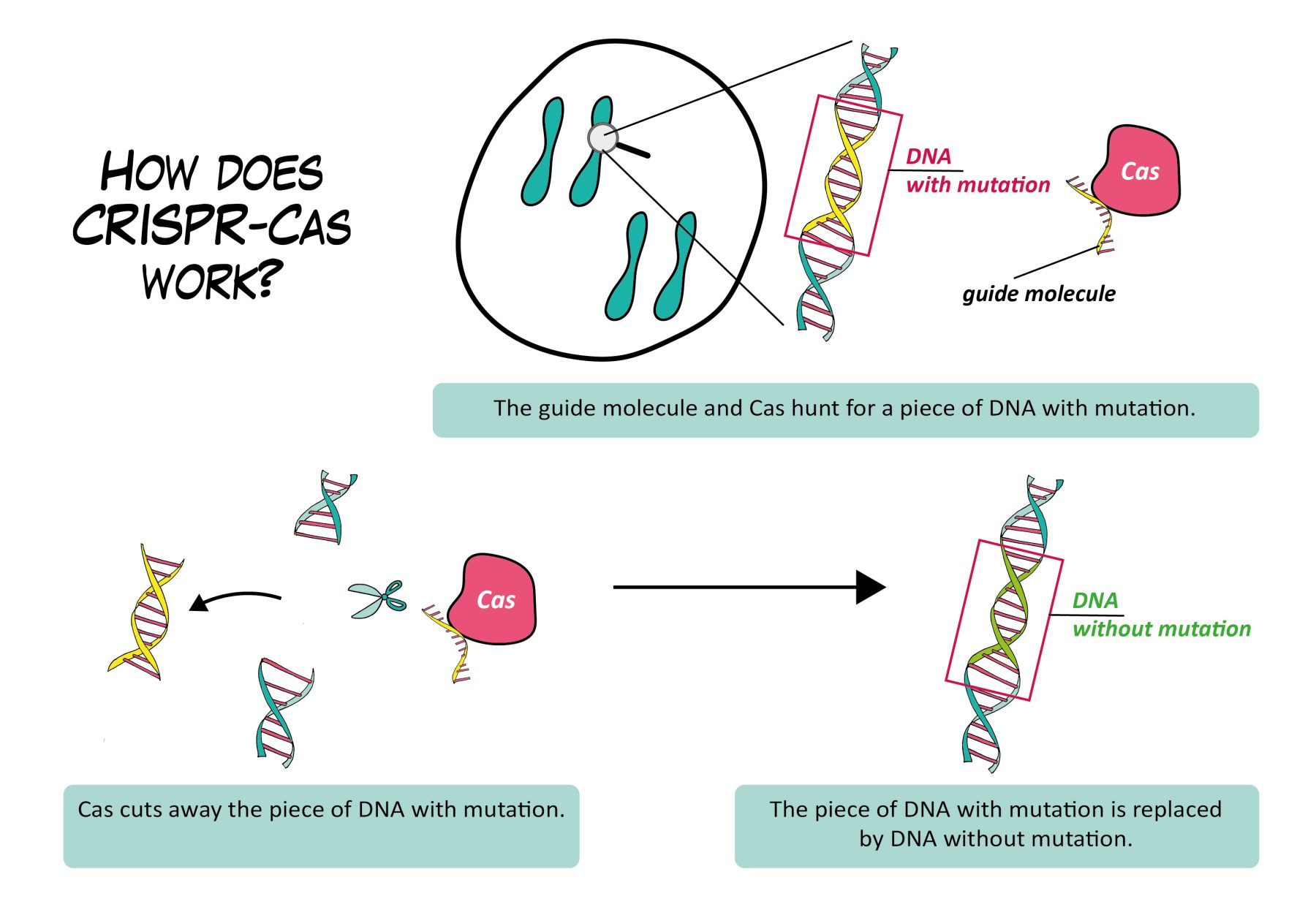With the discovery of the structure of DNA, it became clear how much personal information DNA contains. DNA also plays a role in inherited disorders. The knowledge about these disorders and about how to treat them is increasing over time. It enables us to prevent the manifestation of some disorders or prevent severe symptoms through timely treatment. But screening and diagnostic DNA techniques also raise several personal and ethical dilemmas, about the limits of medical care, disclosure of genetic information, and personal future decisions.
Furthermore, DNA techniques are not only used to diagnose people with disorders. For several years techniques have been developed to diagnose unborn children with severe disorders to enable parents to terminate their pregnancy. Moreover, new techniques enable the modification of DNA to prevent hereditary disorders in future generations. These possibilities raise ethical questions about their acceptability and their consequences.
DNA, or deoxyribonucleic acid, contains all the information necessary to build and maintain processes in humans and almost all organisms. DNA also serves as the primary unit of heredity in organisms of all types. When organisms reproduce, parts of their DNA are passed along to their offspring. An abnormality in DNA, or mutation, can cause a disorder or increase the chance of a disorder. Some disorders are manifested directly after birth, others in later life.
Hereditary diseases can be passed on from parent to child. Here we immediately have the problem of hereditary diseases. If (one of the) parents has such a disease, their child can also get it. You don’t have to be ill to pass on a hereditary disease. Some parents are healthy, but “carry” a mutation, a change (often harmful) in DNA. When two healthy parents pass a harmful mutation, their child may still develop the disease.
Some hereditary diseases can be treated, for example, with a special diet or by taking medication. But for many genetic diseases, no sufficient treatment has yet been developed. That’s why a lot of research is being done on developing new treatments. One of the new treatments developed is gene therapy. Gene therapy restores a harmful change (a mutation) in the DNA. The DNA is then adjusted so that the disease disappears. A new biotechnological tool that is used for this is CRISPR-Cas (see figure).
DNA can be modified in body cells. But in theory, it is also possible to modify DNA in the human embryo. We call this germline gene therapy or germline gene editing. If the editing of the DNA in the embryo succeeds, then this person will be rid of the disease for the rest of his life. And not only that: It is possible that (grand)children will not get the hereditary disease either. As of now, the techniques have not proven to be safe to apply to humans.

Every life is valuable, with or without disabilities. People with genetic disorders should receive support and care, even when they or their parents did not have a genetic test. Our life is in God’s hands. Some people think that DNA tests are at odds with God’s providence. They do not want to know in advance whether they have a hereditary disease. Therefore, the right not to know about genetic disorders is very important and should be guaranteed.

From the principle that every life should be protected, the NPV believes it is important that DNA tests serve this aim. The NPV thinks that a line is crossed when DNA tests lead to ending life prenatally or to selection of embryos. DNA can be a good choice for personal health or well-being, but it is important to guarantee solidarity and justice with people who make different choices to accept or decline certain genetic tests.
In the research phase of developing techniques for (germline) gene editing it is necessary to create embryos for research. The NPV opposes this step because an embryo is the start of a human life and not just material which can be used for research. Furthermore, the created embryo will not develop further as a human being but will be destroyed afterwards.
Another dilemma is that currently there are already insufficient egg cells to fulfil the reproductive wishes of women who cannot become pregnant themselves. Creating new embryos, for which egg cells are necessary, will exacerbate this scarcity.
The NPV think that information provision is of primary importance to make personal and well-considered decision about genetic testing, especially because these tests also have disadvantages.
The NPV have designed decision aids (in Dutch) to support decision-making regarding:
The NPV also has developed several information leaflets: